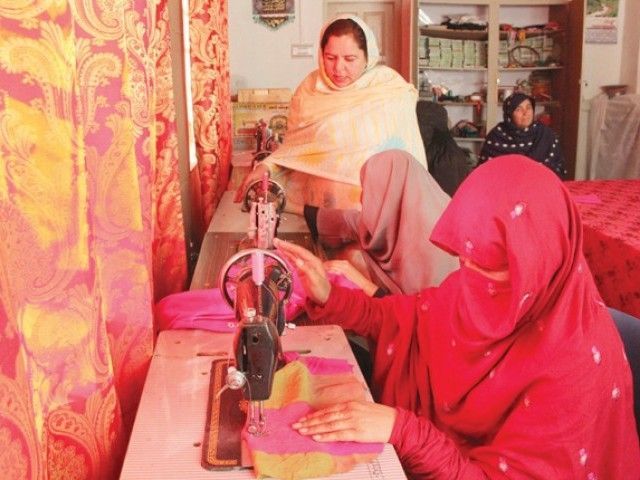
This was stated by the Parliamentary Secretary for Foreign Affairs Andleeb Abbas on Tuesday while addressing a public-private dialogue on Gender Focused Economic Reforms (GFER). The dialogue had been organised by the Centre for Research and Security Studies (CRSS).
Abbas, a leader of the ruling Pakistan Tehreek-e-Insaf (PTI) which has stressed on equipping the unemployed youth of the country with vocational skills — particularly in the digital realm — to empower themselves financially apart from hinging the economic future of the country on entrepreneurship, said that entrepreneurship does not have a gender.
Rather, she said that entrepreneurship is born with an idea that one is excessively in love with.
Given the country’s current economic predicament, she said that if more than half of the country’s population is not economically productive, how can we expect the country to develop?
“Unfortunately, only a small percentage of women, around 23%, contribute to Pakistan’s economy,” she said, adding, “Imagine the country’s productive potential, when this number grows over 50% or more. “
Conceding that there may be some bottlenecks at the policy level, Abbas added that there remain challenges at the social level as well where the existing, traditional mindset needs to be changed.
“There is a dire need to inculcate self-confidence and self-belief in the female youth leaders to improve participation of women in the future of Pakistan’s economic stability,” she said, adding, “Women in Pakistan have infinite potential, they just need opportunities for channelising their potential and talent into a successful future.”
For aspiring entrepreneurs, Abbas said that it is important to understand that scaling, sustaining and growing a business is more important than starting one.
“Not only do businesswomen need financial support but more importantly the financial management skills,” she said.
Pakistan Muslim League-Nawaz (PML-N) MNA Romina Khurshid Alam echoed Abbas’ sentiments that both men and women need to work together to make strong linkages between them.
“This will allow both to move forward together, rather than being mutually exclusive to each other, she said, while seconding Abbas’ argument of changing mindsets.
“Why assign women-specific roles just on the basis of gender. This dampens their prospects to grow due to the unavailability of equal opportunities of social mobility,” she said.
Talking about the role of women in parliament, Alam said that except on a few political issues, all women lawmakers are on one page when it comes to women issues.
COPAIR President and StartUP Pakistan CEO Amna Malik called for joining hands at the social and political level to create critical networks apart from working together to solve issues rather than putting everything on the government.
“Most parents want their children to have jobs, and they hardly consider entrepreneurship [to be a career path],” Malis said, adding that skills-based education and the right kind of mentoring is the key to helping women opt for entrepreneurial activities.
Commerce and Textile Ministry’s WTO Joint Secretary Aisha Humera Moriani urged all chambers of commerce across the country to be connected through a single database with information sharing mechanisms.
She assured participants that every policy decision is taken inclusively after exhaustive consultations with stakeholders.
Commenting on the upcoming Strategic Trade Policy Framework (STPF), Moriani said that many initiatives on gender empowerment have been recommended. This includes the establishment of a women trade facilitation desk, a women entrepreneurs’ network and other initiatives.
She urged women to adopt digital technologies if they want to survive in the future.
Federation of Pakistan Chambers of Commerce and Industry’s (FPCCI) former vice president Masooma Sibtain shared the priority intervention areas identified in the women national business agenda (WNBA) - a policy proposal on gender-focused economic reforms presented from the platform of FPCCI.
She called for robust feedback from the private sector on the potential avenues for enhanced economic participation of women given the impending Small Medium Enterprise (SME) policy and Strategic Trade Policy Framework (STPF) and their importance to reduce the alarming gender gap.
Published in The Express Tribune, February 26th, 2020.

1721377568-0/BeFunky-collage-(18)1721377568-0-165x106.webp)



1725254039-0/Untitled-design-(24)1725254039-0-270x192.webp)

1732617223-0/Untitled-design-(69)1732617223-0-270x192.webp)

1732603037-0/BeFunk_§_]__-(51)1732603037-0.jpg)
1732610150-0/Untitled-design-(3)1732610150-0-270x192.webp)






COMMENTS
Comments are moderated and generally will be posted if they are on-topic and not abusive.
For more information, please see our Comments FAQ